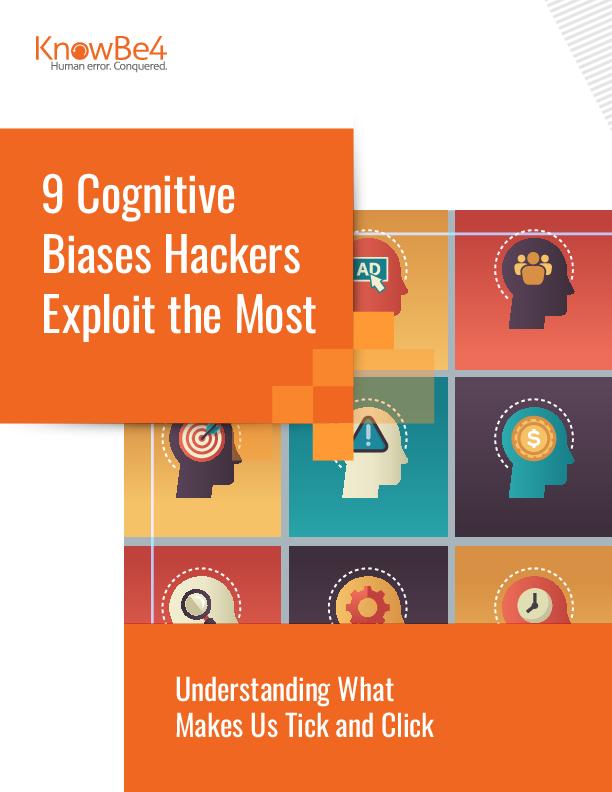9 Cognitive Biases Hackers Exploit the Most
Hackers have become increasingly savvy at launching specialized attacks that target your users by tapping into their fears, hopes, and biases to get access to their data.
Cybersecurity is not just a technological challenge, but increasingly a social and behavioural one. People, no matter their tech savviness, are often duped by social engineer scams, like CEO fraud, because of their familiarity and immediacy factors.
Bad actors know how to tap into specific mental patterns we all have called cognitive biases to trick users into compromising sensitive information or systems.
In this whitepaper, explore how a better understanding of how hackers are duping users can help you identify potential cognitive biases, deliver training that actually changes behaviours, and cut down on security incidents.
- Read this whitepaper to learn:
- How hackers get users to click by understanding how they tick
- Examples of specific cognitive biases hackers use the most through social engineering
- How new-school security awareness training and real-time security coaching can be used to nudge users toward more secure behaviour

